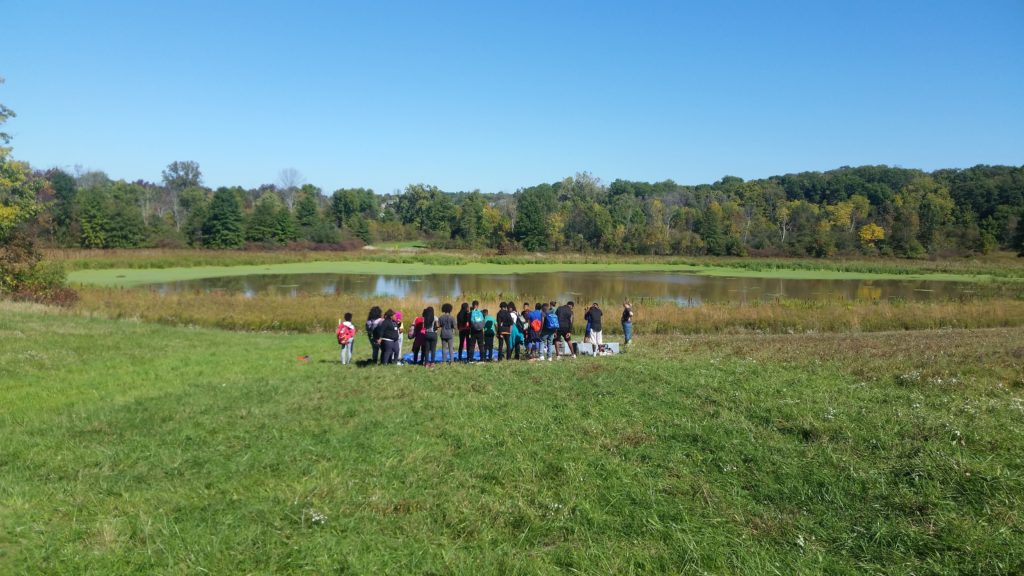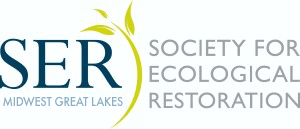The Virtual Field Trip: A Mitigation Strategy for the COVID-19 Pandemic
July 12–by Lara Roketentz, at-large member of SER MWGL Board of Directors
The COVID-19 pandemic is causing massive disruptions in higher education. Faculty across disciplines are struggling to quickly transition to virtual classrooms. Nowhere has this been more difficult than in the field sciences, where first-hand experience with the complexity of the natural world is essential for learning identification, observation, and research skills.
Keenly aware of these challenges are the over 1200 Field Stations and Marine Labs (FSMLs) worldwide which collectively support hundreds of thousands of student field experiences each year. In response to research and educational land closures, an FSML coalition has begun working together to develop digital experiences at these sites that boost observation and research skills.

Students visiting one of the restored wetland areas (Garden Bowl) at The University of Akron Field Station in Bath Nature Preserve, Akron, Ohio.
Supported by a National Science Foundation RAPID-grant (NSF # 2031815), a team of 50 field sites in 26 states and 6 countries has launched the “Virtual Field Project” this summer to:
- Create ecosystem exploration videos to teach students to find and observe evidence of key ecological concepts.
- Host live-streaming cross-site events with researchers to discuss the process of field research with students.
- Share existing virtual materials and events with faculty at universities across the U.S. produced by a variety of organizations. A virtual field portal will act as a signpost, catalog, and calendar for faculty, students and community.
- Evaluate the efficacy of virtual field materials to set the stage for further cross-site virtual field learning initiatives
The project emerged from a grassroots effort by the Organization of Biological Field Stations, and is led by Claudia Luke Center for Environmental Inquiry at Sonoma State University, along with Hilary Swain at Archbold Biological Station, and Kari O’Connell of the STEM Research Center at Oregon State University.
The Virtual Field Project will continue far beyond the COVID-19 pandemic. Multi-site field courses are out-of-reach for many faculty and undergraduates due to logistics, cost and administrative barriers. Field trips created and shared by the Virtual Field Project will give students experience with a diversity of ecosystems around the world, encourage participation by a broader diversity of university courses, and expand opportunities for students with disabilities. The project will also contribute to effective and meaningful field learning that take advantage of both virtual and in-person learning strategies.
The project is highly collaborative and is seeking to share approaches, resources and ideas with field sites, institutions and initiatives interested in enhancing research, education and connection to the earth. Contact: Claudia Luke, Director, Center for Environmental Inquiry, Sonoma State University lukec@sonoma.edu for more information and to get involved.
